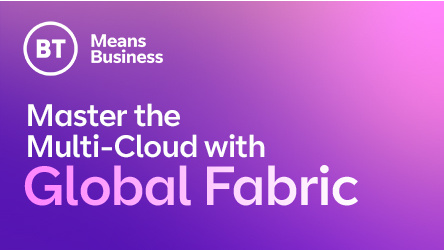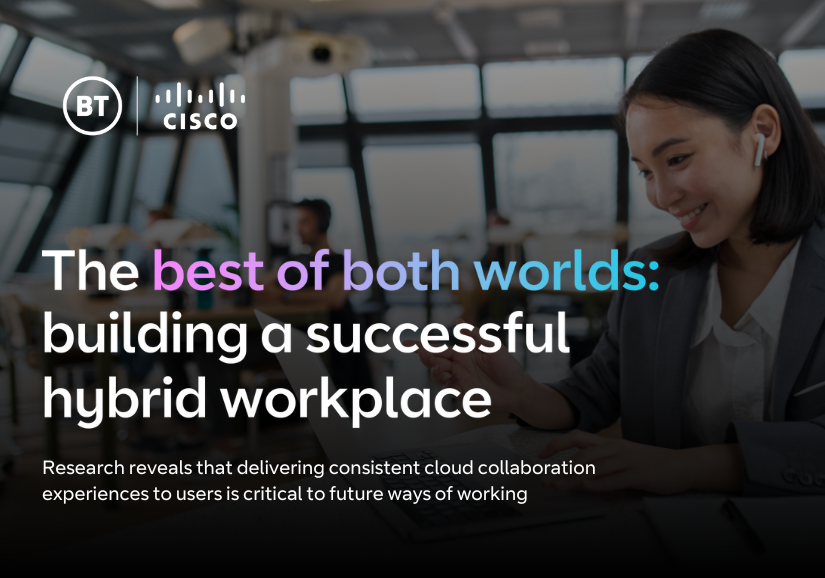Vendors must help with confusion over cloud computing
IT pros are apparently confused by the cloud, and the different ways IT services providers view it isn't helping.


There's been a lot of talk about cloud computing, its development and potential benefits and pitfalls. So it's not surprising that many IT professionals don't yet fully understand what it might mean to them.
The latest research to suggest this found nearly half of a sample of UK public and private sector IT professionals didn't even know what cloud computing is.
That's no surprise, as definitions vary widely, from internet-based computing or software-as-a-service (SaaS) to outsourcing, on-demand, managed or hosted services.
Despite this, IT vendors and service providers are continuing to invest in cloud computing offerings at an impressive pace, according to analyst and consulting firm, Ovum. Principle analyst John Madden said that despite the hype, cloud computing still dominates discussions among enterprise IT customers.
End users, it seems, are at least clearer about their interest in the cloud, "as they look for better and more cost-effective ways to operate and deliver IT services," he added, admitting that "cloud-based services hold great promise for customers and the vendors that offer them".
But Madden also warned: "For the vast majority of enterprise customers there is still far too much hype surrounding what constitutes a cloud, the kind of services that can be delivered and how those will ultimately evolve."
So, while definitions may be still be hazy, the analyst said it was no wonder that, in uncertain economic times, the promise of variable costs, reduced capital expenditure and dynamic scaling of IT resource collected under a general cloud computing' banner was proving popular.
Get the ITPro daily newsletter
Sign up today and you will receive a free copy of our Future Focus 2025 report - the leading guidance on AI, cybersecurity and other IT challenges as per 700+ senior executives
"From talking to CIOs [chief information officers], they want to know what cloud computing means to them and what it's going to do for them," explained Chris Lindsay, BT business applications general manager. "They are looking for someone to take them through the whole process."
A little help, then?
So what exactly is the cloud, and how can it be used in enterprise in its different variations?
Lindsay said BT defines the cloud by the service it delivers: "By segmenting our offerings according to whether they are software, platforms or infrastructure-as-a-service [SaaS, PaaS or IaaS]."
This, he added, allowed BT to have a tangible view of each, where each was in a different phase of the development maturity lifecycle.
Ben Pring, research vice president for Gartner echoed BT's "as a service" view of the cloud.
But in Gartner's view, cloud computing should enable the transfer of traditional IT operations to an outsourced, direct purchase model. He said systems infrastructure delivered as a service is still in its early stages and likely to account for six per cent of the market or $3.2 billion (1.9 billion) this year.
But Pring also predicted: "Cloud-based infrastructure services are expected to see significant adoption through 2013. This segment probably has the largest range of possible outcomes, depending on how aggressively cloud computing is embraced by the major outsourcing vendors and their customers."
A bigger part of the current market is free at point of use, with revenue derived from advertising.
"Services supported by advertising are currently, and will remain, the largest component of the overall cloud services market through 2013," Pring said.
Lindsay from BT suggested the development of cloud infrastructure services was a natural extension of existing hosted offerings.
A 25-year veteran enterprise technology expert, Miya Knights applies her deep understanding of technology gained through her journalism career to both her role as a consultant and as director at Retail Technology Magazine, which she helped shape over the past 17 years. Miya was educated at Oxford University, earning a master’s degree in English.
Her role as a journalist has seen her write for many of the leading technology publishers in the UK such as ITPro, TechWeekEurope, CIO UK, Computer Weekly, and also a number of national newspapers including The Times, Independent, and Financial Times.
-
 AI is helping bad bots take over the internet
AI is helping bad bots take over the internetNews Automated bot traffic has surpassed human activity for the first time in a decade, according to Imperva
By Bobby Hellard
-
 Two years on from its Series B round, Hack the Box is targeting further growth
Two years on from its Series B round, Hack the Box is targeting further growthNews Hack the Box has grown significantly in the last two years, and it shows no signs of slowing down
By Ross Kelly
-
 Master the multi-cloud with Global Fabric
Master the multi-cloud with Global Fabricwhitepaper Achieve internet speed and reliability to match your business ambitions
By ITPro
-
 Anatomy of a good meeting
Anatomy of a good meetingWhitepaper And how to eliminate horrid hybrids
By ITPro
-
 The best of both worlds: Building a successful hybrid workplace
The best of both worlds: Building a successful hybrid workplaceWhitepaper Research reveals that delivering consistent cloud collaboration experiences to users is critical to future ways of working
By ITPro
-
 uSwitch: UK miles away from superfast broadband targets
uSwitch: UK miles away from superfast broadband targetsNews The UK is no way near getting Government targets on superfast broadband, according to a uSwitch report, but BT thinks the research is rubbish.
By Kellan Howell
-
 Five steps to help cure NHS IT
Five steps to help cure NHS ITIn-depth The nightmare of NHS IT can be fixed. Here's five steps that can help it on its way.
By Tom Brewster
-
 Cloud computing to go mainstream in 10 years?
Cloud computing to go mainstream in 10 years?News Executives from the technology industry believe it'll be a while yet before cloud computing becomes the norm.
By Jennifer Scott